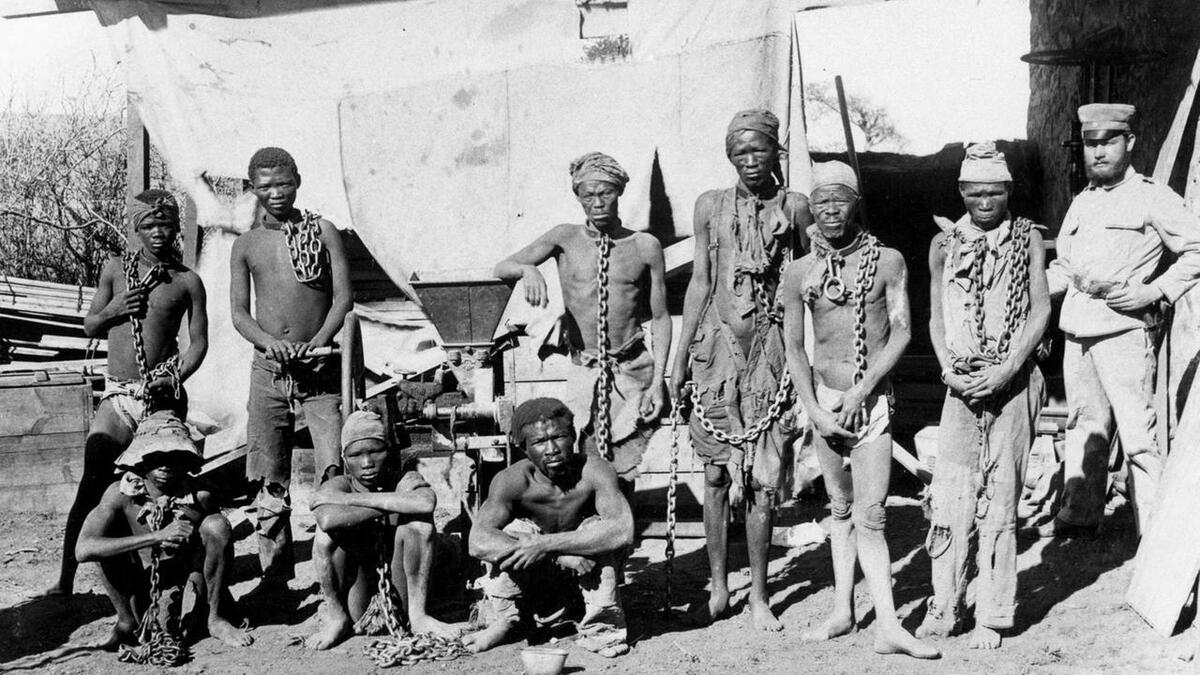Source

Source: Unknown photographer, 1904. National Archives of Namibia
In 1883, Joseph Frederick, one of the elders of the Nama
cattle-herding tribe, sold the nucleus of what would eventually become
German Southwest Africa, Angra Pequena Bay, to the Bremen merchant and
adventurer Adolf Lüderitz (1834-1886). In 1884, the German imperial
government placed “Lüderitz Bay” (as it was subsequently called) and its
immediate surroundings under “protection.” Additional land acquisition
treaties concluded between 1884 and 1890 led to the rapid growth of the
Schutzgebiet Deutsch Südwestafrika.
This expansion was accompanied by increasing tensions between German
settlers and native peoples (Hereros) over access to land and water –
tensions exacerbated by the German government’s legal discrimination
against indigenous residents. In 1904, the Herero revolted, attacking
German farms and killing about 150 German settlers. When 766 German
Schutztruppen (“protection troops”)
were unable to quell the revolt, an additional 14,000 German troops were
sent in under the command of Lieutenant General Lothar von Trotha
(1848-1920). Trotha defeated the Herero and Nama (who had joined with
the Herero) at the Battle of Waterberg on August 11, 1904. He then gave
them an ultimatum to leave the territory or be killed. When many of the
Herero subsequently retreated into a region of the Kalahari Desert,
Trotha made sure they were cut off from all food and water supplies,
leading to mass death from dehydration and starvation. This photograph
from the early phase of the Herero War showing captured Hereros guarded
by a German soldier illustrates not only the imbalance between the two
warring parties, but also the extreme nature of the German military
action.
Trotha’s brutality caused an outcry in Germany and beyond.
The uprising finally ended in 1907-1908. Rough estimates of the number
of Herero killed run as high as 65,000 (80% of the tribe's population);
estimates for the number of Nama killed run as high as 10,000 (50% of
the tribe's population). In 2004, the German Minister for Economic
Cooperation and Development, Heidemarie Wieczorek-Zeul, traveled to
Namibia and issued a formal apology on behalf of the German people.

Source: Unknown photographer, 1904. National Archives of Namibia